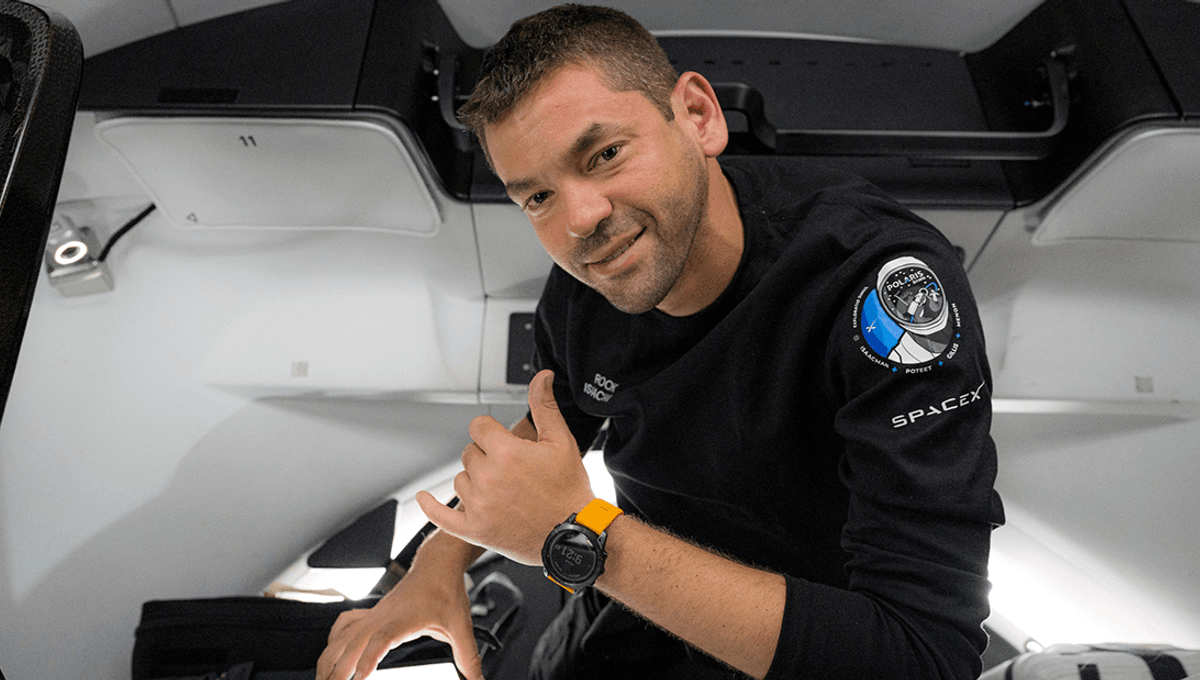
Jared Isaacman, CEO of Shift4 Payments and an occasional commercial astronaut, has answered questions on his plans for the USA’s space program during a confirmation hearing for the role of NASA chief.
In the Senate Committee on Commerce, Science and Transportation, the 42-year-old billionaire was questioned on a wide range of topics, from the Artemis program to his significant ties with SpaceX CEO and Trump henchman Elon Musk.
“Mr Isaacman, you have deep personal and financial ties to Elon Musk. You have invested tens of millions of dollars in SpaceX. You have paid millions of dollars to SpaceX for two private space flights. Your payments company Shift 4 has an ongoing […] global strategic partnership with Starlink worth millions each year, and according to a recent Wall Street Journal report, Musk personally asked you to lead NASA,” Senator Ed Markey said during the hearing, addressing Isaacman.
“Given SpaceX’s significant interest before NASA, you can understand why the public would be concerned about conflicts of interest.”
Isaacman was then asked whether Musk was present when President Donald Trump asked him to lead NASA. Isaacman declined to answer whether the X CEO was present, instead repeatedly reiterating that he was there to be interviewed by Trump. However, he did further claim that he has not discussed his plans for NASA with Musk.
NASA, like other great American scientific institutions, is facing a lot of uncertainty at the moment, and questions focus on the direction of the space agency, as well as recent changes by the current administration. One huge question is over the Artemis program, started in 2017, which aims to return humans to the Moon and establish a base there, before heading to Mars potentially in the 2030s. This plan has been up in the air, following remarks from Trump and Musk that they are prioritizing human flights to the Red Planet.
“We’re going straight to Mars. The Moon is a distraction,” Musk said back in January. “Mass to orbit is the key metric, thereafter mass to Mars surface. The former needs to be in the megaton to orbit per year range to build a self-sustaining colony on Mars.”
In his opening remarks, Isaacman appeared to fall in line with the President and Musk’s goals, as you might expect of Trump’s pick, mentioning a return to the Moon only as a side benefit to a Mars mission.
“As the President stated we will prioritize sending American astronauts to Mars,” he said in the hearing, “and along the way we will inevitably have the capabilities to return to the Moon and determine the scientific, economic, and national security benefits for maintaining a presence on the lunar surface.”
During questioning from Senator Ted Cruz, however, Isaacman suggested that the space agency may pursue both goals in parallel.
“An extreme shift in priorities at this stage would almost certainly mean a Red Moon, ceding ground to China for generations to come,” Cruz said, later revealing a mocked-up poster of Chinese astronauts planting a flag on the Moon. “I’m hard-pressed to think of more of a catastrophic mistake we could make in space than saying to Communist China ‘The Moon is yours.'”
“I don’t think we have to make any tough trades here, Senator,” Isaacman replied. “I think if we can concentrate our resources – and the world’s greatest space agency – we don’t have to make it a binary decision of Moon versus Mars, or Moon has to come first [before] Mars. I think we could be paralleling these efforts and doing the near-impossible, which is exactly why the American taxpayers funded NASA in the first place.”
That sounds, as Cruz responded, pretty expensive, and out of line with the administration’s desire to cut costs and skip over the Moon entirely. Isaacman made it clear during his opening remarks, however, that he would expect NASA to take on more commercial work.
“We will focus our technology development efforts on the world’s greatest engineering challenges, such as the practical application of nuclear propulsion, so we can truly unlock humankind’s ability to explore among the stars,” he said. “We will ignite a thriving space economy in low Earth orbit. By working alongside international partners and industry, we can unlock the true economic potential of space and […] deliver meaningful benefits to the American people, potentially even charting a course for NASA to become […] a financially self-sustaining agency.”
NASA workers hoping for stability or a clear answer on the Artemis program may be disappointed by the incoming chief’s remarks, as well as anybody who hoped to see a return to the Moon in the very near future.
Source Link: NASA Chief Nominee Appears To Contradict Elon Musk's Plans For The Moon And Mars